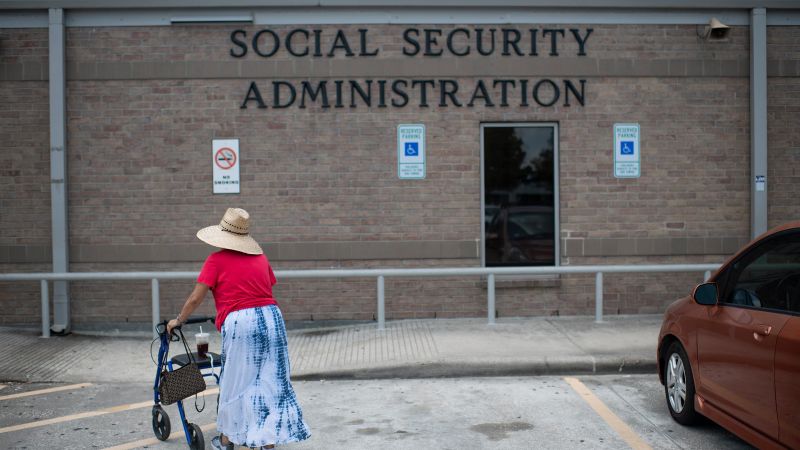The Social Security Administration (SSA) made waves recently by sending an email to numerous Americans, celebrating the approval of President Donald Trump’s domestic policy bill while highlighting the tax relief it intends to provide for seniors. This unexpected outreach strayed from the SSA’s historically nonpartisan stance, which has led to significant criticism from various quarters. Analysts noted that this marked a notable departure from the agency’s usual practice of maintaining political neutrality, raising concerns about the appropriateness of the communication.
Frank Bisignano, the Social Security Commissioner, articulated in the email that the legislation is a monumental advancement for America’s seniors. He expressed enthusiasm over the reduction of tax burdens on Social Security benefits, asserting that this new law reiterates President Trump’s commitment to safeguarding Social Security. The message aimed at encouraging seniors to appreciate their entitlements amidst political maneuverings.
The content of the email also extended to individuals who had yet to qualify for Social Security benefits, emphasizing a blog post on the SSA’s website which reported that nearly 90% of Social Security recipients would become exempt from federal income tax on their benefits. However, the reality of the legislation indicates a more complex situation. While Trump’s campaign promises included abolishing taxes on Social Security benefits entirely, the legislative outcome fell short of that ambition. The Republican-led Congress faced challenges in passing extensive reforms due to budget reconciliation rules, restricting their ability to fulfill these promises entirely.
Instead of absolute tax eliminations, the bill provides a temporary boost in the standard deduction for senior citizens, increasing it by $6,000 from 2025 to 2028, subject to income limitations—where single individuals earning more than $75,000 and married couples exceeding $150,000 would experience gradual phase-outs of these benefits. The discrepancy between the communicated eliminations of taxes on benefits and the legislation’s stipulations has stirred a debate about its actual efficacy and beneficiaries.
Despite claims of abolishing taxes on Social Security benefits, the legislation lacks provisions for numerous beneficiaries, particularly those who opt to receive benefits early. Notably, a fraction of the senior population—over 7 million—will continue to encounter taxable Social Security income that surpasses both the enhanced deduction and the established standard and senior deductions. Furthermore, the anticipated reduction in tax liabilities is projected to precipitate a downturn, hastening the insolvency of the retirement trust fund anticipated to occur between late 2032 to 2033. This would also contradict the assurances given by governmental officials about protecting Social Security.
Moreover, a considerable number of seniors stand to gain neither the enhanced deduction nor benefit from purported tax exemptions due to their low-income statuses, as noted by the Bipartisan Policy Center. Alarmingly, approximately half of the beneficiaries already do not classify their Social Security benefits as taxable income, creating a paradox wherein many from the demographic could remain unaffected by the legislative changes.
In light of these developments, there has been increased scrutiny concerning the SSA’s shift toward political communications, diverging from its traditionally impartial image. Past administrators, such as Martin O’Malley during the Biden administration, have drawn fire for perceived violations of the Hatch Act, prompting discussions on the appropriateness of political discourse within federal agencies tasked with serving the populace without bias.
Kathleen Romig, a former advisor at the SSA, recounted that responses to the email ranged from skepticism to concerns about potential scams, revealing a widespread sentiment of distrust regarding the agency’s communications. This sentiment was echoed across social media platforms, with critics, including Amanda Litman and Jeff Nesbit, questioning the legitimacy and motivations behind such politically charged messages emanating from a government agency.
The implications of these communications are broader than just immediate reactions; they threaten the sanctity of trust that individuals place in government agencies meant to serve vulnerable populations like seniors and those with disabilities. Romig voiced legitimate concerns about potential vulnerabilities arising from such blurred lines between official and unofficial communications, emphasizing the risk of eroding public confidence in legitimate government outreach while fostering an environment conducive to fraudulent schemes.
As of now, the SSA has not issued any further commentary on the controversy surrounding its communication practices, leaving citizens, analysts, and lawmakers to ponder the ramifications of the agency’s foray into political discourse. The delicate balance between advocacy for vulnerable populations and the integrity of institutional nonpartisanship remains a topic of urgent discussion as the nation charts its path forward.











